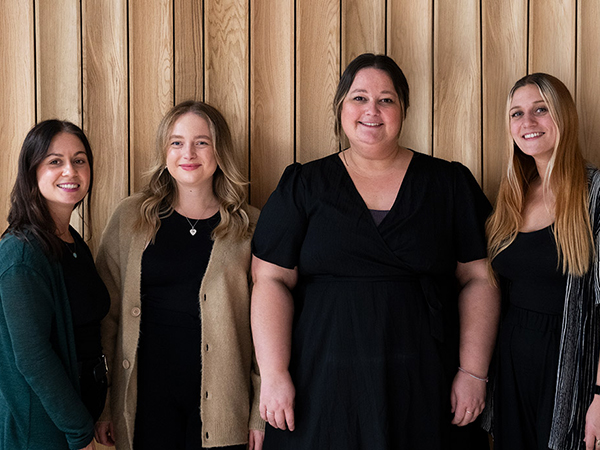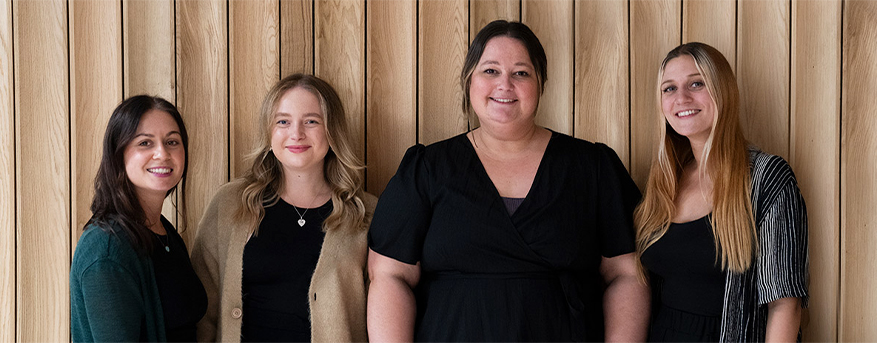Borneo highlights & map
Borneo may be an island, but it’s the third largest in the world, so don’t expect to visit all of Borneo's highlights unless you spend a very, very long time here. Sabah is the most accessible region with the best infrastructure – and it’s small enough to cover in a fortnight. Tours often combine with the slightly less developed Sarawak. Indonesian Borneo – Kalimantan - is still new to tourism, with most travelling done by boat, less English spoken and – joy – fewer tourists. As the key attractions are in the south, itineraries rarely combine Malaysia and Kalimantan. Below are our top routes, incorporating our favourite Borneo highlights.
1.
Bako National Park
2. Banjarmasin
3. Batang Ai National Park
4. Brunei
5. Danum Valley Conservation Area
6. Gunung Mulu National Park
7. Kinabalu National Park
8. Kinabatangan
9. Kota Kinabalu
10. Kuching
11. Lamandau River
12. Lankayan & Selingan Islands
13. Matang Wildlife Centre
14. Semenggoh Orangutan Centre
15. Sepilok
16. Tanjung Puting
2. Banjarmasin
3. Batang Ai National Park
4. Brunei
5. Danum Valley Conservation Area
6. Gunung Mulu National Park
7. Kinabalu National Park
8. Kinabatangan
9. Kota Kinabalu
10. Kuching
11. Lamandau River
12. Lankayan & Selingan Islands
13. Matang Wildlife Centre
14. Semenggoh Orangutan Centre
15. Sepilok
16. Tanjung Puting
Bako National Park
1. Bako National Park
Bako has been protected for over half a century, meaning the wildlife found here is less fearful of humans. Pendulum-faced proboscis monkeys are its most famous inhabitants, but keep an eye out for monitor lizards, otters, bearded pigs and macaques. The golden sands of the nearby Santubong Peninsula are a welcome retreat at the end of your Borneo adventure, or Sarawak Cultural Village - a fantastic "living museum".
Banjarmasin
2. Banjarmasin
Banjarmasin, the “River City”, sits in a delta and is riddled with rivers and canals. Residents paddle about in canoes, and floating markets are stocked with fruits, vegetables and tea sellers. Cultural tours here will take you along wooden walkways into local homes, where you can enjoy a Banjarnese lunch, or visit a batik workshop to see how this characteristic textile is created.
Batang Ai National Park
3. Batang Ai National Park
A wonderful example of community-led conservation, the Iban are the custodians of this remote national park and its rare wildlife, along with the nearby Ulu Ai - a fantastic partnership between the tribes and a local tour company. Transport is via boat along the rivers and accommodation is in traditional longhouses. Volunteers can work in the orangutan rehabilitation centres here, learning from the Iban.
Brunei
4. Brunei
This miniscule country is renowned more for its loaded Sultan than its tourism, but if you’re heading to Borneo, Brunei is an easy stopover and it’s well worth popping in for a glimpse of a very different side of the island. The country is peppered with huge, beautiful mosques, and Ulu Ulu National Park protects one of Borneo’s best-preserved rainforests, the hugely biodiverse Batu Apoi.
Danum Valley Conservation Area
5. Danum Valley Conservation Area
This virgin tropical forest shelters endangered orangutans, proboscis monkeys and pygmy elephants – as well as newly discovered species and rare birds. There are numerous waking trails, a 300m suspended walkway and a panoramic viewpoint; night time safaris reveal the nocturnal creatures that call this forest home. Recently unearthed ancient burial sites add yet more value and intrigue to the conservation area.
Gunung Mulu National Park
6. Gunung Mulu National Park
This park became a UNESCO Site in 2000, in recognition of its natural diversity, beauty and geology. The Mulu Caves are its most popular attraction; the Cave of the Winds was used as a burial site up to 3,000 years ago. The monumental limestone karsts are striking, with deep gorges and blade-like peaks. Longboats cruise down the Melinau River, hiking trails lead deeper into the forest.
Kinabalu National Park
7. Kinabalu National Park
This UNESCO World Heritage Site protects half of all Malaysia’s bird, mammal and amphibian species in the forests beneath the mighty Mt Kinabalu. Nature trails reveal a wonderful diversity of plants, including 500 orchid species and the world’s largest flower – the rafflesia – as well as waterfalls, a canopy walk and the revitalising Poring Hot Springs, all against the backdrop of the mountain.
Kinabatangan
8. Kinabatangan
The lakes, mangrove swamps and lowland forests of this wildlife sanctuary comprise one of the planet’s richest ecosystems, and river cruises are a tranquil wildlife experience. Ten primate species live here, along with proboscis monkeys, orangutans and pygmy elephants. Don’t miss the Gomantong Caves, home to two million bats and over a million swiftlets, whose nests are used to make bird’s nest soup.
Kota Kinabalu
9. Kota Kinabalu
Known affectionately as KK, Sabah’s capital is a captivating blend of Asian and European culture with huge mosques, Filipino markets, British colonial architecture, Chinese restaurants and indigenous culture – including the State Museum’s human skulls which recalls Sabah’s headhunting history. Water sports, diving and snorkelling take place in the adjacent Tunku Abdul Rahman Marine Park.
Kuching
10. Kuching
Sarawak’s capital is a pleasant base for exploring the state’s many attractions. It's proudly multiracial, filled with many Chinese and Indian ethnicities as well as indigenous Malays and Indonesians – visit the excellent State Museum to find out more. There are Chinese temples, grand mosques, stilt houses, a handcraft bazaar and a vast Sunday food market. The flashy Waterfront is worth a visit – but beware steep prices.
Lamandau River
11. Lamandau River
This wildlife reserve is one of the key spots for orangutans in Central Kalimantan, with around 700 estimated to live here. It has six orangutan monitoring and release camps, including Pangkalan Bun and Camp Bulu. Some are open to visitors, others just to long- and short-term volunteers who work on construction projects and get exclusive glimpses into orangutan rehabilitation and protection.
Lankayan & Selingan Islands
12. Lankayan & Selingan Islands
Selingan is known as "Turtle Island" thanks to the endangered green and hawksbill turtles that arrive most nights to lay their eggs on its beaches. Tourism contributes the local conservation programme - but you need to stay overnight. Turtles can be seen on nearby Lankayan Island from June to August, and the surrounding Marine National Park protects a marine menagerie, ideal for snorkelling and diving.
Matang Wildlife Centre
13. Matang Wildlife Centre
Located in Kubah National Park, Matang is a refuge for rescued orangutans – as well as sun bears and cats – in contained areas of rainforest as well as smaller enclosures for those awaiting release. Day visitors can observe feeding sessions; longer volunteer placements include working on the infrastructure and learning animal husbandry techniques. You can also meet the local Iban communities.
Semenggoh Orangutan Centre
14. Semenggoh Orangutan Centre
This Borneo highlight is a sanctuary for semi-wild orangutans which have been injured, orphaned or kept illegally as pets. Babies are taught, over several years, how to survive in the forest, learning to climb, forage and build nests. Semi-rehabilitated adults are most likely to be spotted at feeding times, when they dangle on vines, swing through trees and play with each other and the wardens.
Sepilok
15. Sepilok
This 43 square km sanctuary is the largest of its kind in the world. Illegally captured, orphaned and injured orangutans are taught to survive in the wild, by pairing younger individuals with older ones – this may take up to seven years, just as it would in the wild. Visits generally take place during morning feeding sessions; other rescued species in the sanctuary include sun bears, gibbons and Sumatran rhinos.
Tanjung Puting
16. Tanjung Puting
Orangutans, proboscis monkeys, gibbons and 200-plus species of birds roam this road-free national park. Exploration takes place on foot or on a traditional Klotok boat – where you can sleep on deck at night. The Orangutan Foundation has several rehabilitation and release sites here, as well as Camp Leakey Research Centre; volunteers can help construct enclosures and are given exclusive access to wild orangutan habitats.
Borneo orangutan holiday
Trekking, wildlife and beach adventure holiday to Borneo
From
£4275
14 days
inc UK flights
Borneo tour, Great Apes and Beach escapes
Explore bustling cities, lush jungles and paradise beaches.
From
£2400
9 days
ex flights
Borneo tailor made holidays, wildlife & beaches
A luxury tour of the best wildlife & beaches of Sabah
From
£2990
13 days
ex flights
Borneo small group adventure holiday
A varied and exciting 2-week Borneo tour of Sabah & Sarawak
From
£2400 to £2545
13 days
ex flights
Borneo family tour
A fabulous family holiday including the best of Borneo
From
£3000 to £4000
15 days
ex flights
Contact Us

Call us for a chat about our holidays. We are happy to discuss your holiday and help in any way we can. No bots, queues or awful hold music.
01273 823 700
Call us until 6pm
Calling from outside the UK

Borneo itineraries
Sabah & Sarawak – 14 days
Kuala Lumpur > Kota Kinabalu > Sandakan > Selingan Island > Sepilok > Kinabatangan > Kota Kinabalu > Kuching > Bako National Park > Batang Ai > Kuching > Kuala Lumpur
Sarawak highlights – 10 days
Kuala Lumpur > Kuching > Bako National Park > Semenggoh Orangutan Rehabilitation Centre > Gunung Mulu National Park > Kuching > Ulu Ai > Kuala Lumpur
Kalimantan conservation holiday – 10 days
Jakarta > Pangkalan Bun > Tanjung Putung National Park > Camp Leakey > Lamandau River Wildlife Reserve > Pangkalan Bun > Jakarta
Kuala Lumpur > Kota Kinabalu > Sandakan > Selingan Island > Sepilok > Kinabatangan > Kota Kinabalu > Kuching > Bako National Park > Batang Ai > Kuching > Kuala Lumpur
Sarawak highlights – 10 days
Kuala Lumpur > Kuching > Bako National Park > Semenggoh Orangutan Rehabilitation Centre > Gunung Mulu National Park > Kuching > Ulu Ai > Kuala Lumpur
Kalimantan conservation holiday – 10 days
Jakarta > Pangkalan Bun > Tanjung Putung National Park > Camp Leakey > Lamandau River Wildlife Reserve > Pangkalan Bun > Jakarta
Borneo travel times
The following times give you a rough idea of the travelling distances between the main attractions in Borneo.
































